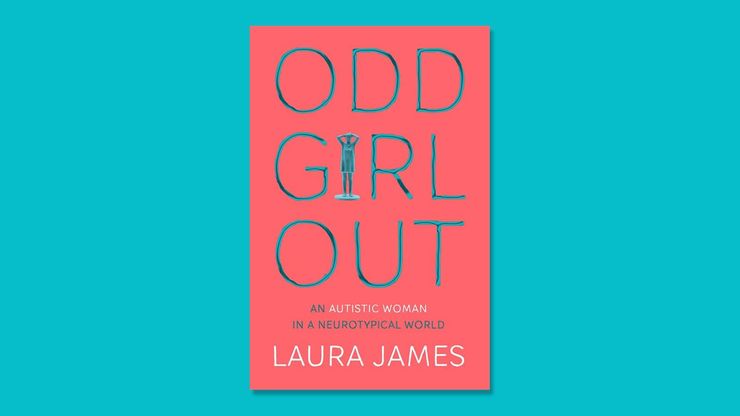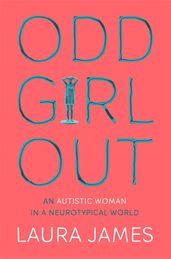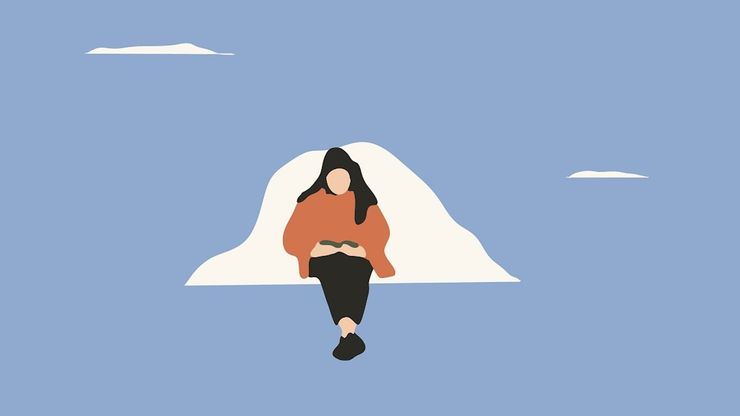Five things you can learn from someone who is autistic
Author of Odd Girl Out, Laura James shares five of the things she loves about being autistic.

Author of Odd Girl Out, Laura James shares five of the things she loves about being autistic.
There's a saying in the autistic community: ‘If you've met one autistic person you've, well, met one autistic person'. We're all just as different as neurotypical people are. So I should preface this piece with a disclaimer and say these are the things I love about being autistic, but they won't apply to everyone on the spectrum. They are also things those close to me appreciate. Of course, there are downsides to autism; there are downsides to everything, even chocolate. But it is lovely to be able to celebrate the positives too. So, here are the top five things I love about being autistic . . .
I process information logically rather than emotionally
If I spot a friend across the road and they seem to ignore me, or if my husband is short with me on the phone, I won't immediately imagine the worst. Instead, I will consider whether my friend may simply be in a hurry or has forgotten her glasses. I will be direct and ask my husband if I have caught him in the middle of something. This logical approach means I literally never row with my husband and my friendships – from my side at least – are always easy.
I never play games
In my twenties, I voraciously read women's magazines. I devoured every single piece of advice. I learned how to dress for my shape, be great at interviews and create the perfect smoky look with just the right amount of eye shadow. One thing that never made sense to me, though, was all the stuff about making boys like you by pretending to be super busy, more popular than you actually were or by allowing them to believe you weren't that fussed about them. I just couldn't (still can't) play those games. If I liked someone, I told him. If I felt he wasn't that into me, I'd just ask outright. I think this approach saves a lot of time, energy and heartache.
I spot patterns and can find needles in haystacks
I realised when I was quite young that my brain works differently. I spot patterns in things, so can often see which way a situation will go. I'm also great at sifting through information to find the salient points. This can mean tirelessly searching out an elusive fact, which is enormously helpful in my work as a writer but which also brings me great pleasure. So, while someone else might stress or be irritated by information not being readily available, I see it as a joy.
My obsessions often lead to creative projects
I can become super-obsessed with my special interests. The word obsession often has negative connotations, but I love mine and feel that perhaps they bring me the kind of perspective people say they get from meditation. I have had all sorts of special interests over the years, ranging from Jilly Cooper novels to glamping. Many have been a source of great enjoyment, but they have also often led to awesome work assignments. I see it in other autistic friends too, often with sport or a creative endeavour. For example, I know an autistic woman who crafts the most beautiful jewellery and another who is a very successful marathon runner. I think the single-mindedness that often comes with autism can be a great help with these kinds of pursuit.
I can see all sides of (most) arguments
More than ever the world seems to be split down binary lines, with a great deal of store put on which opinion is right or wrong. When I come across an argument, I can see both sides because I tend not to feel too emotionally involved. And while my opinion will often come down very firmly on one side, I tend not to fall out with those on the other as my responses aren't clouded by emotion. Instead, by going in with rational questions or non-confrontational points, the debate tends to move on constructively rather than ending up in a screaming match.
Odd Girl Out
by Laura James
Laura James found out that she was autistic as an adult, after she had forged a career for herself, married twice and raised four children. This book tracks the year of Laura's life after she receives a definitive diagnosis from her doctor, as she learns that 'different' doesn't need to mean 'less' and how there is a place for all of us, and it's never too late to find it.
Laura draws on her professional and personal experiences and reflects on her life in the light of her diagnosis, which for her explains some of her differences; why, as a child, she felt happier spinning in circles than standing still and why she has always found it difficult to work in places with a lot of ambient noise.
Although this is a personal story, the book has a wider focus too, exploring reasons for the lower rate of diagnosed autism in women and a wide range of topics including eating disorders and autism, marriage and motherhood.



